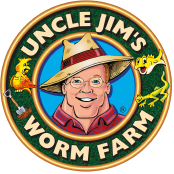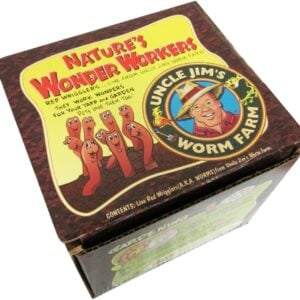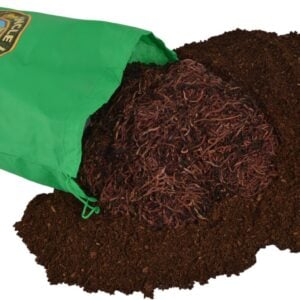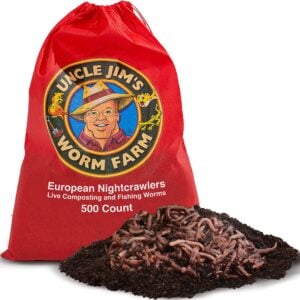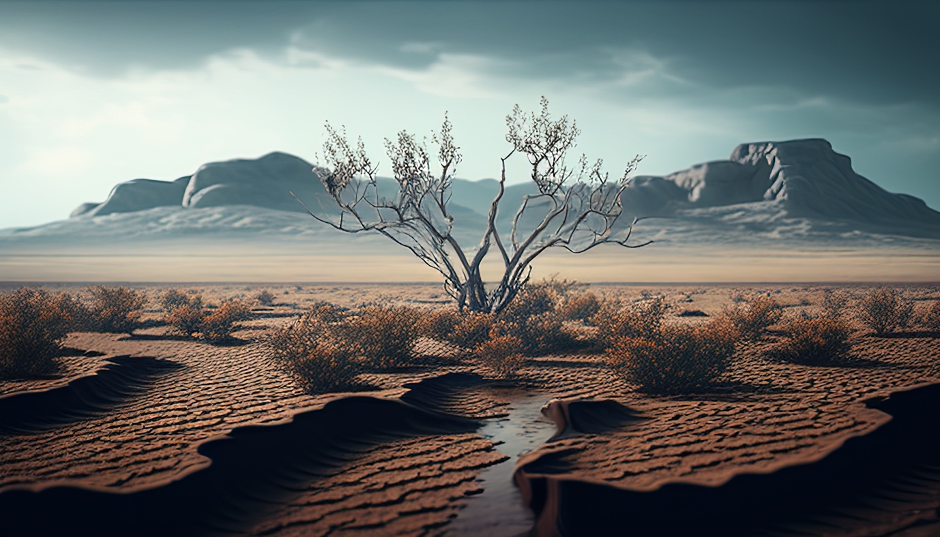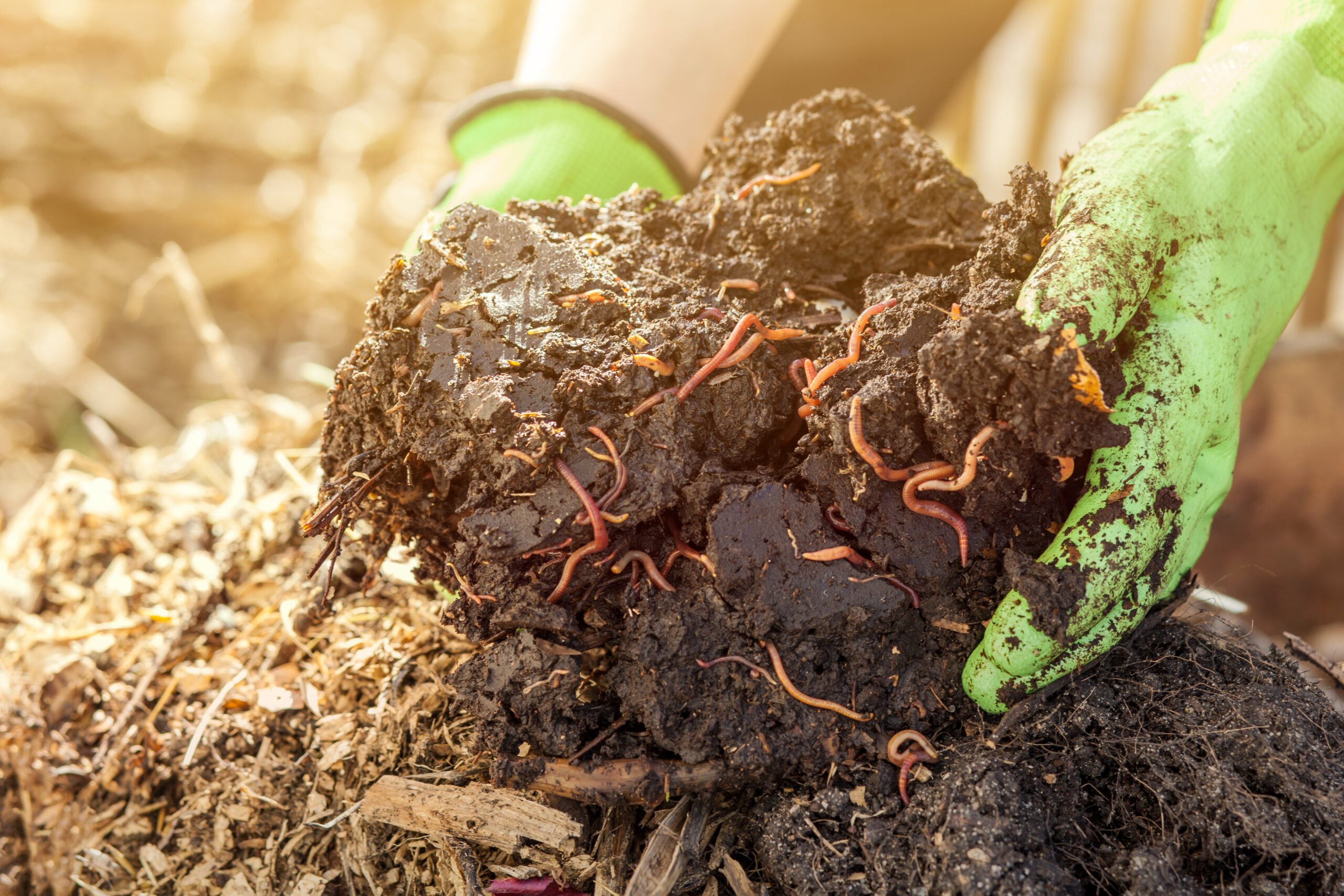Looking for a way to enrich your soil and boost plant growth, but can’t make up your mind between compost vs. worm castings? To skip all the fluff, let’s get straight to the point – both offer many benefits for your garden. But they do have distinct characteristics that set them apart.
And we explain all of them in this article. By the end, you will know the difference between compost and worm castings (with an extra vermicomposting vs. worm castings explanation added in), the advantages and disadvantages, and how you can combine them together. So let’s get started and have Uncle Jim guide you on your soil enrichment journey.
What Is Regular Compost?
Compost is a nutrient-rich organic material formed through the decomposition of various organic materials like kitchen waste, leaves, grass clippings, coffee grounds, and more. Microorganisms, fungi, and insects work together to break down these materials, resulting in a dark, crumbly substance that improves soil structure and fertility.
In the simplest of terms, compost is decayed organic waste that can be used as fertilizer.
What Are Worm Castings?
Worm castings are a product of a specialized composting process involving red wiggler worms and other types of composting worms. These industrious little creatures consume organic matter and excrete nutrient-rich waste that also contains a large amount of beneficial bacteria, creating a finely textured, humus-like substance known as worm castings. This material is full of nutrients essential for plant health and growth, like nitrogen and phosphorous.
To simplify again, worm castings are essentially worm poop from composting worms that can be used as fertilizer.
But now, let’s complicate things just a bit.
Vermicompost vs. Worm Castings
Some people use the terms vermicompost and worm castings interchangeably. In all honesty, I sometimes do it too. However, strictly speaking, vermicompost and worm castings are not the same thing.
As we said, worm castings is worm manure – so organic matter that passed through a worm’s gut. Vermicompost is the natural fertilizer that is produced in a worm composting bin. As such, it is mostly made up of worm castings but also other decomposed organic matter.
The reason why it’s mostly fine to use vermicompost and worm casting interchangeably is because it is very difficult – in practical terms impossible – to fully separate worm castings from the other compost in a worm bin. So whenever you buy worm castings, you are truly buying vermicompost – compost with a highly concentrated amount of worm castings.
With that out of the way, let’s get back to regular compost vs. worm castings, i.e., vermicompost.
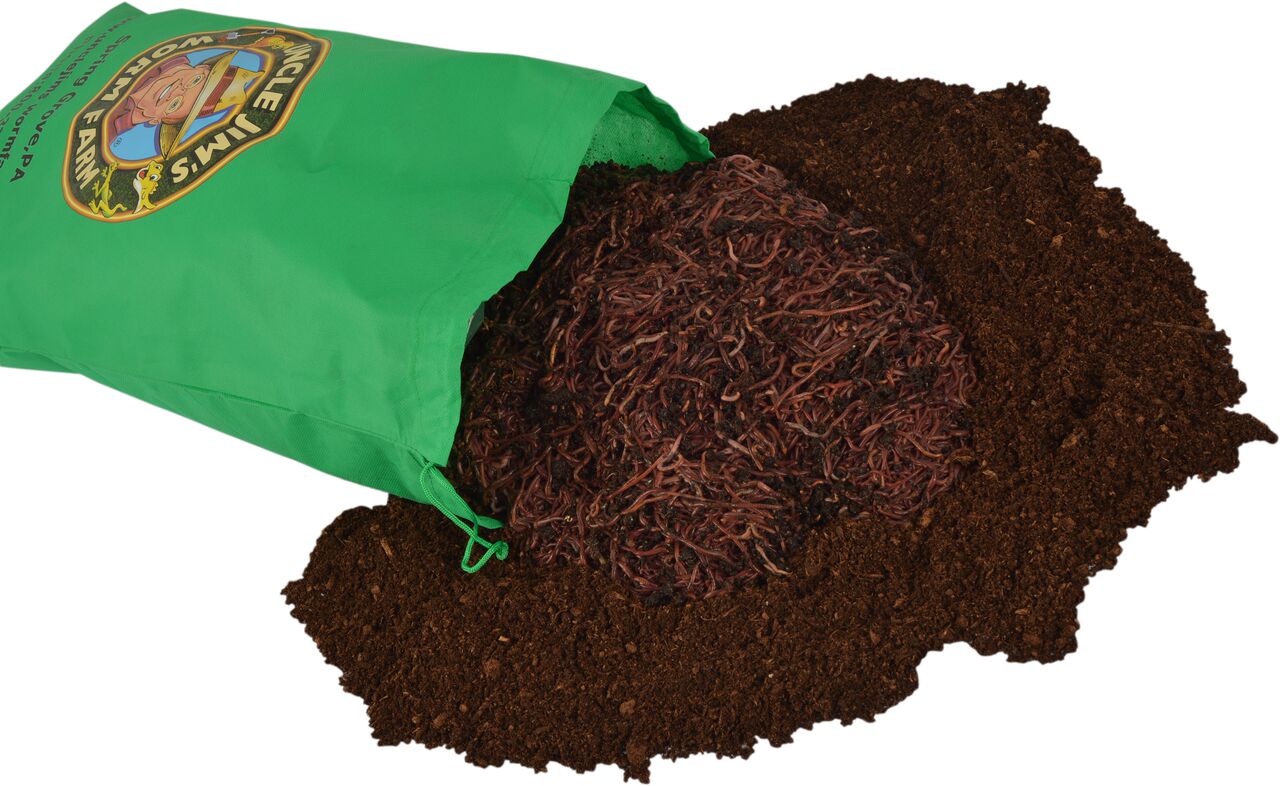
Compost vs. Worm Castings
Now, let’s delve into the key differences between compost and worm castings:
- Composition: Traditional compost is a mixture of various organic waste materials, including kitchen scraps, leaves, yard waste, etc. In contrast, worm castings are purely the excrement of red wiggler worms. But in practice, you get vermicompost, so it’s compost with a high concentration of worm castings.
- Nutrient Content: Worm castings are renowned for the high level of nutrients they contain, including essential elements like nitrogen, phosphorus, and potassium. Compost also contains essential nutrients but in lower concentrations.
- Microbial Activity: Worm castings contain a thriving community of beneficial microorganisms, like bacteria, due to the worms’ digestive processes. Compost has microorganisms too, but not as densely populated as in worm castings. This high concentration of microorganisms and bacteria from a worm’s gut is the most significant difference between compost and worm castings.
- Texture: Compost typically has a coarser texture compared to the fine, crumbly consistency of worm castings. This makes worm castings easier to incorporate into the soil and more suitable for seedlings.
The Benefits of Using Compost and Worm Castings in Your Garden
Both compost and worm castings offer numerous advantages when applied to your garden, with worm castings simply having stronger effects:
- Improved Soil Structure: Both amendments enhance soil structure, making it more porous and better at retaining moisture and nutrients.
- Nutrient Boost: Worm castings and compost provide a concentrated source of nutrients, promoting healthy plant growth and increased yields.
- Microbial Health: The microorganisms in both compost and worm castings contribute to soil health, aiding in nutrient cycling and disease suppression.
- Reduced Chemical Dependency: By incorporating these organic amendments, you can reduce the need for chemical fertilizers, promoting a more sustainable garden.
The Disadvantages of Compost and Worm Castings
While compost and worm castings are beneficial for plant growth and health, let’s also consider their limitations:
- Cost and Effort: Producing a high-quality compost pile and worm castings can be time-consuming and may require initial investments in equipment or worms for vermicomposting.
- Variable Quality: The quality of compost can vary based on the materials used and the composting process. Similarly, the quality of worm castings can depend on the worms’ health and diet.
- pH Adjustment: A compost pile can sometimes have a variable pH level, which may require monitoring and adjustment for specific plants.
In essence, the disadvantages of compost and worm castings are that they can be difficult or costly to acquire and require some knowledge to use properly. If these two factors are discarded, there are no drawbacks to using these organic fertilizers.
Can I Combine Compost and Worm Castings?
If you read the article carefully until now, you understand that you more or less get vermicompost by combining compost and worm castings. So what’s the answer?
Absolutely! Combining compost and worm castings can offer a well-rounded approach to soil improvement. The compost provides bulk organic matter, helping with soil structure and water retention, while the worm castings infuse the soil with concentrated nutrients and beneficial microorganisms.
To combine them effectively, mix the two soil amendments thoroughly before adding them to your garden beds or containers. This blend capitalizes on the strengths of both compost and worm castings, resulting in a balanced and fertile growing environment for your plants.
Composting, Vermicomposting, Worm Castings – All Good for Your Soil
In the debate of compost vs. worm castings, there’s no definitive winner, as each serves its purpose in gardening. Compost offers a versatile, nutrient-rich foundation, while worm castings provide a potent, concentrated nutrient source.
By understanding their differences and advantages, you can tailor your gardening approach to best suit your plants’ needs. And remember, there’s no harm in combining the two to create a powerhouse of soil enrichment for a thriving garden.
If you’re thinking of starting vermicomposting on your own, Uncle Jim’s got you covered. We’ve got everything you could want for a worm farm – from vermicomposting bins to red wiggler worms that produce high-quality worm castings to worm food. Check out our selection to find all the things you need.
